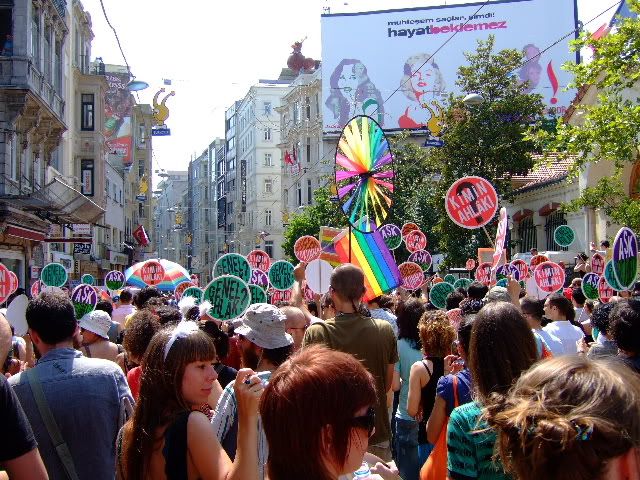Wokamuka
New Member
- Joined
- Aug 13, 2007
- Messages
- 1,878
- Reaction score
- 0
Turkey: Homophobic Violence Points to Rights Crisis (Human Rights Watch, 22-5-2008)
In recent years, Turkish authorities have repeatedly harassed human rights defenders and civil society groups working on issues of gender and sexuality. Most recently, on April 7, 2008, police raided the offices of Lambda Istanbul, a nongovernmental organization that has advocated for LGBT people’s rights for over 10 years. The police justified the incursion by claiming the organization “encourages” and “facilitates” prostitution. The Istanbul Governor’s Office has also filed a lawsuit trying to close down Lambda, arguing its name and objectives are “against the law and morality.” Lambda will once again have to defend its right to exist before the Beyoðlu 3rd Civil Court of First Instance on May 29, 2008.
The report examines a wide range of human rights violations based on sexual orientation and gender identity. Several transgender people told Human Rights Watch how police tortured and raped them. One gay man recounted how another man stabbed him 17 times in an attempted murder that still remains unsolved. A lesbian couple described how their parents used violence to try to separate them; when they turned to a prosecutor for help, he refused, questioning them instead about their sex life. Human Rights Watch also found that, in a flagrant violation of the European Convention on Human Rights, the Turkish military continues to bar gay men from serving in its forces. At the same time, Turkey withholds any recognition of conscientious objection to military service. Some objectors must instead identify themselves as “sick” – and are forced to undergo humiliating and degrading examinations to “prove” their homosexuality.
The report acknowledges that there have been some positive changes in Turkish law and policy as the country attempts to join the European Union. However, it also calls on the EU to insist on respect for LGBT people’s basic rights as a barometer of Turkey’s human rights progress.
Turkish law offers no express protections for LGBT people’s universal human rights. In 2005, Turkey reviewed some of its laws to bar discrimination, a move meant to show Turkey’s commitment to European Union standards. However, Turkey has yet to adopt a comprehensive antidiscrimination law that conforms to EU standards.
The EU seems to be paving the way for universal human rights. Turkey wants to be part of the EU so bad, it's alarming.

 for shedding light....
for shedding light.... I really hope that Turkey would show some respect to the homosexuals just like other countries someday, they do deserve it.
I really hope that Turkey would show some respect to the homosexuals just like other countries someday, they do deserve it.
